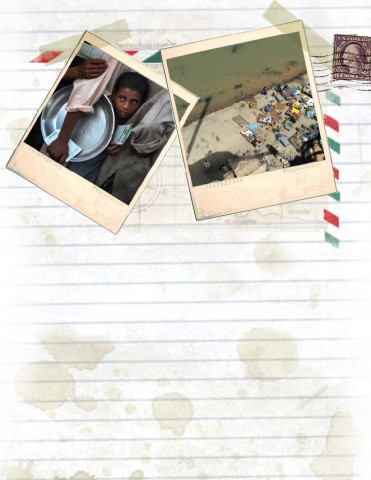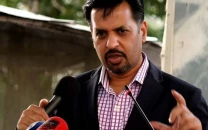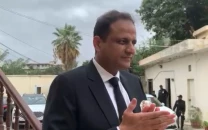The day Edhi broke down
Edhi saheb keeps talking but at one stage, the lion-hearted man breaks down as he recalls the Calcutta famine.

The day Edhi broke down
“You’ve got to help me,” he said. “Azra hasn’t eaten since that tragedy. She doesn’t even sleep. I have spoken to doctors but they have no medicine to improve her appetite. They say she is in shock like everyone else at the camp and as time passes, she will get well. Just keep her happy, they tell me. But I know that she will die if she goes on like this.”
I suggest he contact his family but he tells me that they won’t accept Azra because she belongs to another caste. He is therefore adamant about living in relief camps with Azra rather than going back to the comfort of his family.
I shake hands with Fayyaz and wave to Azra before leaving the camp. As I walk back to the car, I receive a call from the Edhi Centre inviting me to meet the man himself, Abdul Sattar Edhi, for iftar.
On my way there, I tell my driver Ahmed about Azra and Fayyaz. “You must help them!” he says. I keep quiet. I can only help them by telling the world, I think.
Edhi Centre in Sukkur is located on the bank of the Indus right across the Bunder Wall. I am greeted by his son Faisal Edhi, who is in the middle of a telephone interview with foreign journalists. We sit on chairs by the roadside and wait for his father.
As I wait I watch Edhi volunteer teams prepare packets of food. In one corner, a team prepares an ointment for scabies. I am told this is Edhi saheb’s own formula.
Faisal joins us after the interview. What’s the damage, I asked him in a lighter vein. Wiping his forehead, Faisal tells me that it is devastation of an unknown magnitude. We are just settling into a conversation when Edhi saheb joins us.
“This is a devastation of immense proportions and what makes it worse is the attitude of our leaders,” he says. “We have lost standing crops and grain stocks to the floods. We won’t be able to cultivate another crop for at least a year or so and then we hear that we will have floods of the same magnitude this time next year too.”
“But aren’t we going to get foreign aid?”
“Foreign aid is not forthcoming for two reasons; one, the government has lost credibility after fudging figures in the war on terror funding and two, foreign NGOs and aid agencies are scared of the Taliban as they prefer to supply aid with their own hands.
“I am sad about the devastation in Sindh, but what makes me even sadder is that we are moving towards a cataclysmic famine in the coming months,” he says. “It reminds me of the 1943 famine of Calcutta.” Bengal was hit by a cyclone that year, wiping out the rice crop. The British colonial government was facing a battle with advancing Japanese forces, as a result of which they did not pay any attention.
When the prime minister, Churchill, was informed about the food shortages, he said: “If food is so scarce, why hasn’t Gandhi died yet?” His attitude led to starvation and malnutrition, killing an estimated three million people.
Edhi saheb suddenly becomes pensive. I see a lot of similarities in today’s situation in Sindh and the Calcutta famine of 1943, he says. The colonial government could supply food to the dying Bengalis, but it paid no attention as it was more involved in the war.
It is the same case now. The federal government and even the provincial government of Sindh are not paying any attention to the catastrophe. They are more interested in playing politics over the flood. Their focus is on who gets how much out of the expected foreign aid.
Bengalis at that time died because of the government and local administration’s mismanagement. As the staples became scarce and then ran out, prices went soaring and were consequently out of the poor man’s reach.
Edhi saheb keeps talking but at one stage, the lion-hearted man breaks down as he recalls the Calcutta famine. I was just a young lad then but even I remember the mass graves.
TO BE CONTINUED
Published in The Express Tribune, August 30th, 2010.



















COMMENTS
Comments are moderated and generally will be posted if they are on-topic and not abusive.
For more information, please see our Comments FAQ